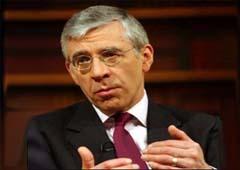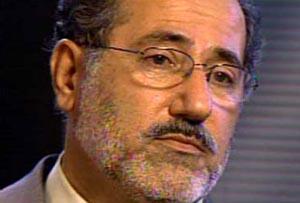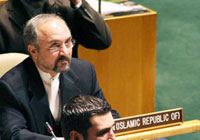
Press TV’s programme Iran Today talking about the MKO, past, present and future
This TV documentary reviews on the terrorist MKO’s  past atrocious history, its collaboration with the Iraqi ousted dictator and its present situation in Camp Ashraf in Iraq. Following the Iraqi government’s decision to close Camp Ashraf the group is facing an unclear future.
past atrocious history, its collaboration with the Iraqi ousted dictator and its present situation in Camp Ashraf in Iraq. Following the Iraqi government’s decision to close Camp Ashraf the group is facing an unclear future.
Press TV, Iran Today, February 10, 2009



 supposed Iranian government-in-exile.
supposed Iranian government-in-exile. 